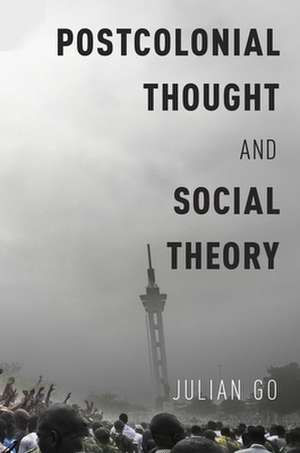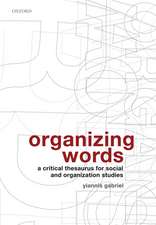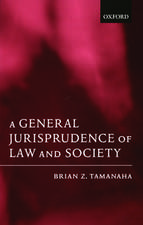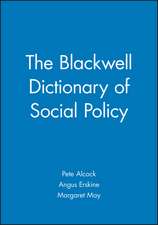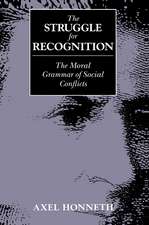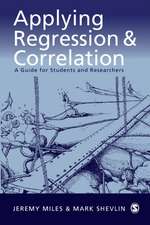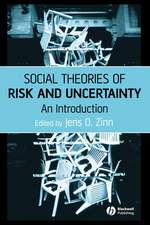Postcolonial Thought and Social Theory
Autor Julian Goen Limba Engleză Paperback – 30 sep 2016
| Toate formatele și edițiile | Preț | Express |
|---|---|---|
| Paperback (1) | 344.95 lei 3-5 săpt. | |
| Oxford University Press – 30 sep 2016 | 344.95 lei 3-5 săpt. | |
| Hardback (1) | 817.28 lei 31-37 zile | |
| Oxford University Press – 17 noi 2016 | 817.28 lei 31-37 zile |
Preț: 344.95 lei
Nou
Puncte Express: 517
Preț estimativ în valută:
66.00€ • 69.10$ • 54.62£
66.00€ • 69.10$ • 54.62£
Carte disponibilă
Livrare economică 17-31 martie
Preluare comenzi: 021 569.72.76
Specificații
ISBN-13: 9780190625146
ISBN-10: 0190625147
Pagini: 264
Dimensiuni: 156 x 235 x 15 mm
Greutate: 0.41 kg
Editura: Oxford University Press
Colecția OUP USA
Locul publicării:New York, United States
ISBN-10: 0190625147
Pagini: 264
Dimensiuni: 156 x 235 x 15 mm
Greutate: 0.41 kg
Editura: Oxford University Press
Colecția OUP USA
Locul publicării:New York, United States
Descriere
Social scientists have long been resistant to the set of ideas known as "postcolonial thought." Meanwhile, postcolonial scholars have considered social science to be an impoverished discipline that is part of the intellectual problem for postcolonial liberation, not the solution. This divergence is fitting, given that postcolonial thought emerged from the anticolonial revolutions of the twentieth century and has since become an enterprise in the academic humanities,while social theory was born as an intellectual justification for empire and has since been institutionalized in social science. Given such divisions - and at times direct opposition - is it possible to reconcile the two? Postcolonial Thought and Social Theory explores the divergences and generative convergences between these two distinct bodies of thought. It asks how the intellectually insurrectionary ideas of postcolonial thinkers, such as Franz Fanon, Amilcar Cabral, Edward Said, Homi Bhabha and Gayatri Spivak, among others, pose a radical epistemic challenge to social theory. It charts the different ways in which social theory might be refashioned to meet the challenge and excavates the oftenhidden sociological assumptions of postcolonial thought. While various scholars suggest that postcolonial thought and social science are incompatible, this book illuminates how they are mutually beneficial, and argues for a third wave of postcolonial thought emerging from social science but also surmounting thenarrow confines of disciplinary boundaries.
Notă biografică
Julian Go is Professor of Sociology and Faculty Affiliate in Asian Studies at Boston University. He has held Visiting Fellowships and Professorships at the London School of Economics, Pompeu Fabra University in Barcelona, University of Lucerne in Switzerland, and the Third World Studies Center in the Philippines. His previous books on the US empire have won prizes from the American Sociological Association, the International Studies Association, and the AmericanPolitical Science Association.
Recenzii
Go's main thesis is that the social sciences could and should be transformed by an encounter with postcolonial theory... wondering whether postmodernism was worth all the fuss, Go's book leaves us in no doubt as to the value of postcolonial thought for social theory... sociologists would do well to consider Go's important and provocative book.
In very brief and schematic terms, this is the powerful framework Go provides us to reform sociology and social theory from a postcolonial point of view.
In very brief and schematic terms, this is the powerful framework Go provides us to reform sociology and social theory from a postcolonial point of view.
